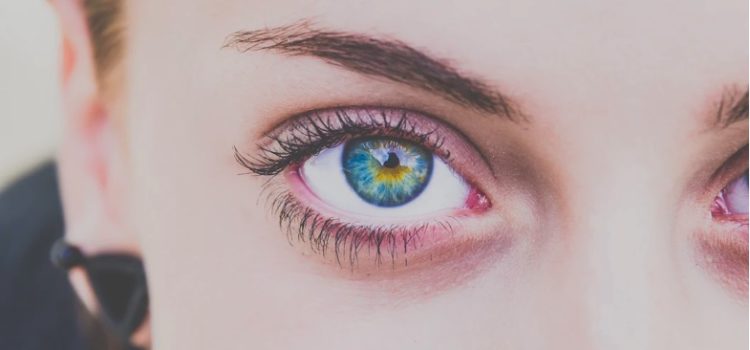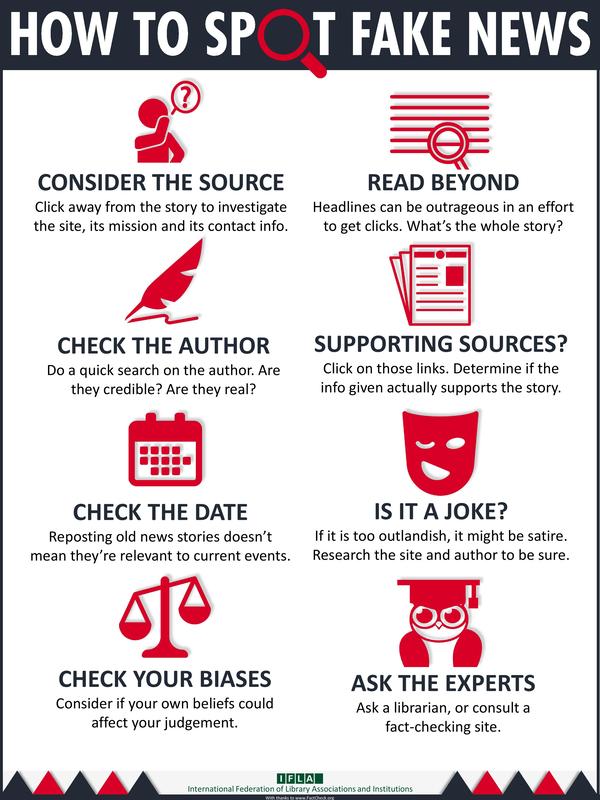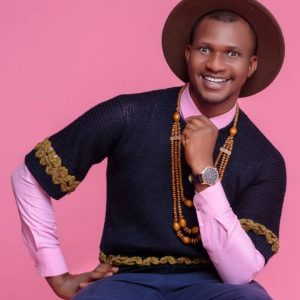FACT-CHECKING: Do You Really Need It? This Will Help You Decide!

Understanding Fact-checking:
The Oxford Dictionary describes fact-checking as a process seeking to “investigate (an issue) to verify the facts”. Though Allan Leonard et all argues that while instructive, this necessarily concise definition is limited in its understanding of the practical outworkings of what constitutes fact-checking, the variation and scope of its practices, as well as the factors and social, political and cultural contexts in which fact-checking has become an established practice. They further stated that fact-checking is a form of critical, investigative inquiry. This includes a wide range of approaches and practices therein as seen in the case of Nedu, who begins with a stretch of hands towards his mobile device, then a quick flip to his Instagram responds to new messages, checks out new followers and then making a quick post about his modelling career. The next stop is his WhatsApp, more of his messages here is to copy and share a call, career news and sorts. Most times he does not bother to check the details of the messages or read to understand; therefore he reacts to his comments and posts not because they align with his philosophy but because the person that had made the post is a friend, colleague or trusted ally. Nedu’s guide to social media is the typical guide of a millennial, Gen-Zers and most digital natives around the globe.
It is proven that humans respond more to a post specifically if the post is coming from someone they admire or whose beliefs they respect than sharing a post because it supports their claim about a particular thing. At a time when social media reaction is the new method of engagement, many have sacrificed professionalism on the altar of popularity.
When the world confirmed the first coronavirus case, it becomes pertinent that the people are reminded to spread facts and not panic built on someone’s political agenda and narrative. As the deadly virus spread from Wuhan, China, to the rest of the world, misinformation tagged along because the advent of social media has modified and amplified a whole new horizon for the News cycle and News dissemination, this development has made everyone a content creator, news editor and citizen journalist. Consequently, fact-checking experts said all these have resulted in the easier spread of falsehood and with the world, as a multi-diverse, ethnic, religious and political pace there is a high possibility of being caught between people’s opinions and facts.
The concept of what you see is all there is “WYSIATI”
 Copyright © 2021 Shortform Books
Copyright © 2021 Shortform Books
Daniel Kahneman, a psychologist who won the Nobel prize in economic sciences, introduced the concept of “WYSIATI” (What you see is all there is), meaning that we tend not to look for what we do not see. We rather rely on the information that is directly available to us, without being fully aware of what we do not know. Mr Nnamdi Obi believe that the world just like Nigerians need to understand that Fake news is the new biggest buzzword: “We see it all over our televisions, it is always motioned on the radio, and it is in the paper and on the Web. It is a word thrown around within the political circle. It is a lifestyle now that if anyone doesn’t agree with a report! The way out is to call it fake news or term it hate speech”. Media practitioners believe there is so much misinformation spread around that audiences no longer know what to believe while PR experts argue that the concept of fake news, while often used to demean an unflattering report, is also a legitimate problem. The line between journalism and other content has blurred, making it more important than ever that all writers, regardless of their platform, verify their facts.
In recent times Nigerians have fought against the Hate speech bill which if passed into law will allow the government to hang to death anyone whose speech resulted in the death of another, what this means is that that lots of people will die because now opponents and allies alike will find a way to tie death to any speech they don’t like and once there’s death, whoever that made the speech will also have to die. Two wrongs have never made anything right. This will also muzzle the press and control how people say things. The media will lose its essence.
Then there’s the social media bill, which will regulate the online space if it becomes a law. These two bills “Prohibition of Hate Speech Bill and Internet Falsehood and Manipulation Bill” are both according to the government geared towards checkmating fake news and advocate for fact-checking.
Nigeria Twitter Ban:

© IT News Africa
The most recent is the Twitter Ban; recall that in early June 2021, the Nigerian government announced that it had banned the use of Twitter in the country. This followed the media platform’s decision to delete a tweet by the Nigerian president, Muhammadu Buhari because it violated the platform’s rules. The Attorney General of Nigeria, Abubakar Malami, vowed to prosecute violators of the ban, a threat that he later recanted.
Nigeria has also battled different narratives of regional security. These narratives were shaped by the contents found on social media. Fake pictures circulating on the virtual space which some users smartly planted to depict inter-communal violence are inflaming already high tensions in Nigeria. Fake news has been a big problem for some time now, and there are many people like Nedu who just react to a post because it was posted by a friend or that will just read a post of Facebook and believe it to be the truth, without finding an original or secondary source.
The most disturbing is the circulation of a story titled” breaking news, with a picture of a man called Adewale Isaac Olorogun, who in the story was the man who drove the white man to a company in Ogun state, it went further to state that he was diagnosed with coronavirus and then ran away from the hospital. Threatening to spread the virus all over Nigeria by taking public transport to different states if his family is not paid 100million naira.”
The writer’s Fact check finding indicates that the said picture being circulated online does not correspond with the name and doesn’t even align with the story, if it is true, unfortunately. It’s not.

© Copyright 2021, Global Investigative Journalism Network
Ekene’s fact-checking exercise also proves that the said picture was first used online on December 15, 2018, when Buzz fed published a story of how one man was sold into Libya for slavery, after that, that same picture has been used on most social media hook up sites like Badoo and others. It has even been reposted 6 times online and used for different stories by different publishers.
In the words of Varley, Fact-checking is incredibly important in any industry, not just marketing, Whether you’re promoting a product/service, writing an opinion piece or reporting on a news story, it’s vital to get all the facts right. A single mistake, no matter how small, could result in anything from losing your customers’ trust to becoming the target of an internet backlash or even legal repercussions.
More fake news stories will likely surface about regional security and this conversation of not properly moderated would result in a crisis. Social media companies like Facebook and Twitter have revealed plans to fight the global problem of fake news, Experts have suggested these five ways to stop the spread of misinformation:
Ways to Fact-Check stories

© International Federation of Library Associations and Institutions (IFLA)
Check the source: Fake social media accounts often try to appear as if they are from legitimate news sites, so check that every account you share information from is genuine. Verified accounts on Facebook, Twitter and Instagram have a blue tick.
Look at multiple sources: Although this isn’t foolproof, it’s nonetheless worth checking multiple reputable news sources when trying to verify if what you’re seeing is real. Ask yourself: Are trusted news outlets also reporting this information?
Verification tools: There are dozens of tools online that can help determine the authenticity of a picture or a video. Google, Bing and Tin Eye all offer a reverse image search, which can tell you where images have been used before. Video verification is trickier, but tools like InVid allow you to select the video from Facebook and YouTube to see if or where these videos have been used before.
The old and still relevant way is to ask an expert
Check metadata: If you have an original video or picture, you can check the metadata which will give you a wealth of information, including where and when the image or video was taken plus the device make and model. Unfortunately, when images and videos are uploaded to social media platforms their metadata is stripped out.
Think before you post: It sounds obvious, but being careful not to add to the problem of fake news. Before you post, ask yourself if you’re sure the information you’re about to post is real.
Sources:
Soyinka, A (2021, June 24) Nigeria’s decision to ban Twitter has no legal basis. Here’s why https://theconversation.com/nigerias-decision-to-ban-twitter-has-no-legal-basis-heres-why-163023
LEONARD, A et al (2021) what is fact-checking and why is it important? https://coinform.eu/what-is-fact-checking-and-why-is-it-important/
United Nations publication (2020) World Social Report 2020 Inequality in a Rapidly Changing World https://www.un.org/development/desa/dspd/wp-content/uploads/sites/22/2020/01/World-Social-Report-2020-FullReport.pdf
Lile, S (2017, April 27) Survey Results: How Has Fake News Affected Content Marketing? https://visme.co/blog/fact-checking-for-content-marketers/
Onukwue, A (2021, August 6) Nigeria’s Twitter ban is proving costlier than just a regular internet shutdown https://qz.com/africa/2043666/twitter-ban-has-cost-nigeria-over-360-million-in-two-months/
Images:
© Copyright 2021, Global Investigative Journalism Network
Penn A “What You See Is All There Is” Bias (WYSIATI) (2019, November 11) https://www.shortform.com/blog/what-you-see-is-all-there-is/
Okojie, B (2021, June 4) https://www.techcityng.com/twitter-ban-in-nigeria-what-you-need-to-know/
© International Federation of Library Associations and Institutions (IFLA)







